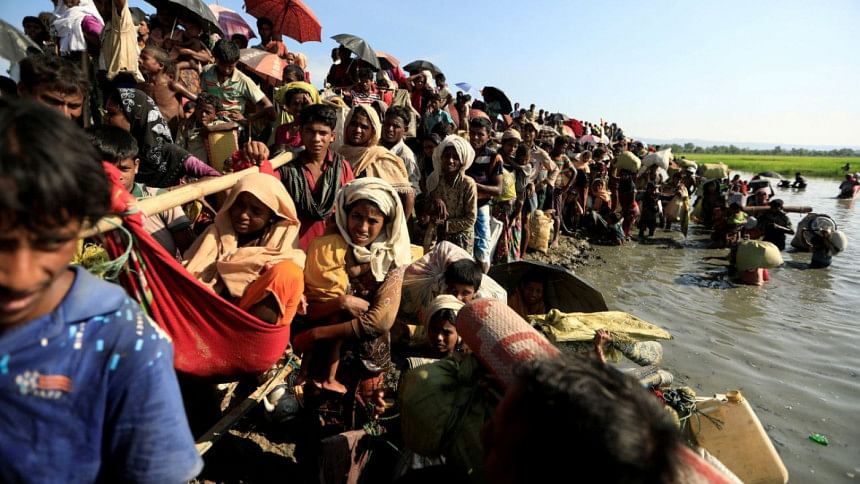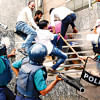HRW opposes plan to move Rohingyas

Bangladesh should dramatically improve living conditions for Rohingya in the world's largest refugee camp and scrap plans to move many to a flood-prone island, Human Rights Watch said yesterday.
Almost one million Rohingya Muslims forced out of Myanmar now live in southern Bangladesh, with 700,000 of them arriving after the latest crackdown on the stateless minority started in August last year.
The US and UN have branded operations by Myanmar security forces as ethnic cleansing. Rohingya have recounted widespread rape, murder and torture while being driven out of their villages, hundreds of which were razed to the ground.
Myanmar denies almost all accusations of atrocities and says it was defending itself against Rohingya militants who launched deadly attacks on police posts.
Bangladesh and Myanmar have signed a repatriation agreement but Rohingya are refusing to return without guarantees of safety and rights, including freedom of movement and citizenship.
Meanwhile they wait in cramped camps with flimsy bamboo huts perched on muddy hills, cheek-by-jowl with other families and exposed to the elements.
"What this means with people packed so closely together, particularly if this is going to last longer and longer, is it's an incubation for contagious disease, for social dysfunction, domestic violence for example, and things like fire," Bill Frelick, refugee rights director at Human Rights Watch, told reporters in Bangkok at the launch of a new report on conditions in the camps.
The average space in the mega-camp section of Cox's Bazar is 10.7 square metres per person, compared to a refugee camp standard of 45 square metres per person, according to the report, which is based on dozens of interviews with Rohingya, officials, NGOS and UN agencies in May.
"Immediately what is needed is relocation," he added, citing additional risks of landslides during the monsoon season.
But the rights group also urged Bangladesh to abandon a plan to move some 100,000 Rohingya to an island in the Bay of Bengal called Bhasan Char.
Refugees have heard rumours of the move to the uninhabited silt island prone to regular tidal flooding, and have expressed no interest in going there.
Frelick said Bangladesh had earned enormous goodwill by accepting Rohingya, but moving them against their will could "change that sense of trust and sense of gratitude overnight".
Human Rights Watch said it has identified six feasible sites in a subdistrict that could accommodate 263,000 people.
Other recommendations were for authorities to provide Rohingya with legal refugee status, allow more freedom of movement, create better access to education and build cyclone shelters.
The report called for greater contributions from donor governments, agencies and NGOs to help improve conditions. It said an appeal for $136.6 million for shelter and non-food items was only 14 percent funded as of last month.
Bangladesh refugee commissioner Abul Kalam told the rights group that authorities are working on moving tens of thousands of people to better areas. But Kalam said many are reluctant to go without knowing the conditions of the sites.

 For all latest news, follow The Daily Star's Google News channel.
For all latest news, follow The Daily Star's Google News channel. 








Comments